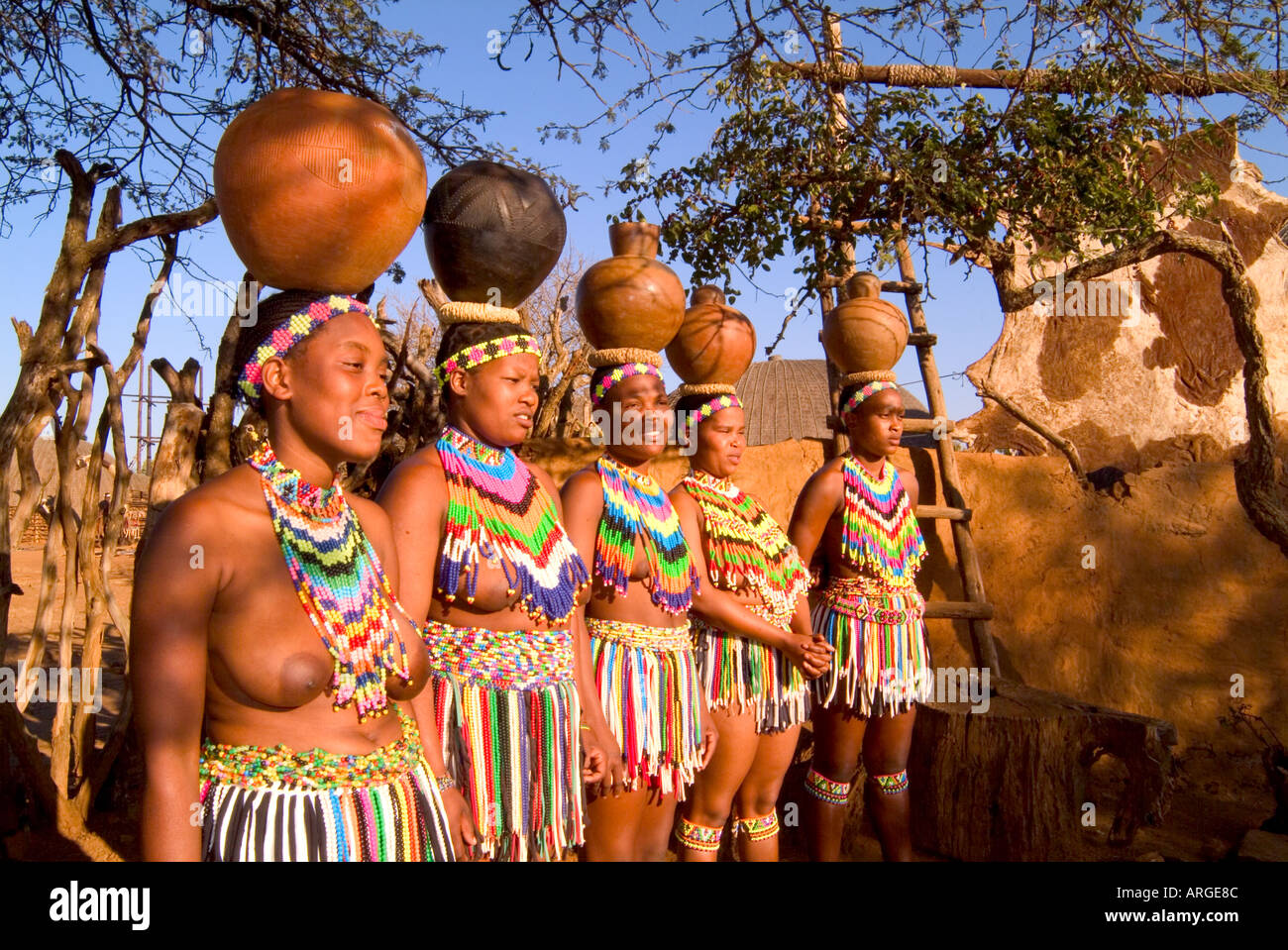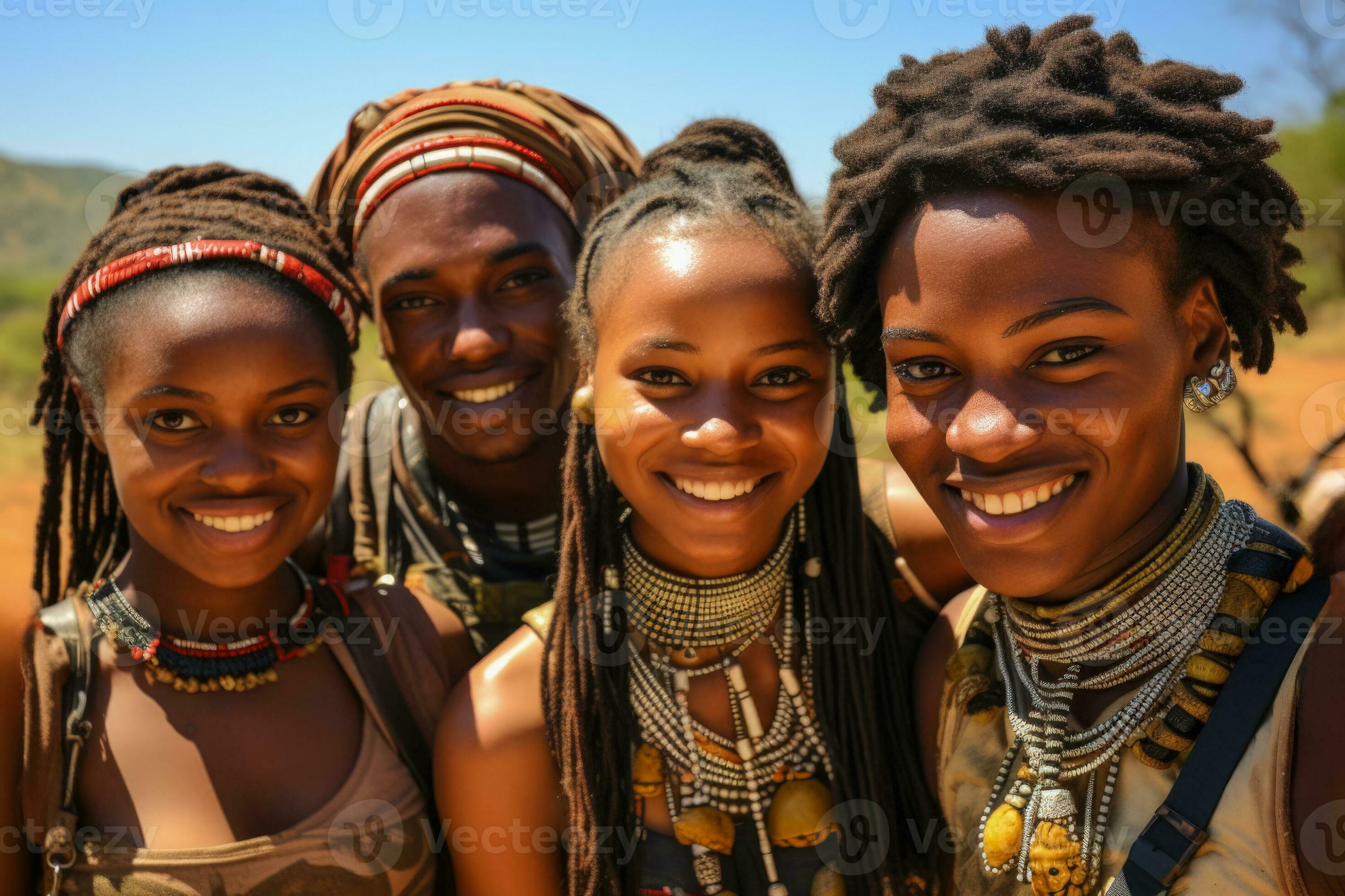What defines a nation's soul? In South Africa, it is undoubtedly the vibrant tapestry woven by its diverse tribes, each thread a story of resilience, tradition, and cultural richness.
South Africa, a land of breathtaking landscapes and a complex history, is also a melting pot of cultures. One of the most fascinating aspects of this heritage is the presence of numerous tribes, each contributing to the nation's unique identity. These tribes have played a significant role in shaping the country's history, culture, and social fabric, creating a dynamic and compelling narrative that continues to evolve. From the warrior traditions of the Zulu to the artistic expression of the Ndebele, the tribes of South Africa offer a glimpse into a world of enduring traditions and historical significance.
| Tribe | Approximate Population | Language(s) | Notable Cultural Aspects | Geographic Distribution |
|---|---|---|---|---|
| Zulu | Approximately 12 million | isiZulu | Warrior history, vibrant culture, beadwork, dance, music | KwaZulu-Natal, Gauteng |
| Xhosa | Approximately 8 million | isiXhosa | Oral traditions, storytelling, initiation rites, Xhosa music | Eastern Cape, Western Cape |
| Sotho | Approximately 6 million | Sesotho (Southern Sotho) | Blanket traditions, Basotho hats, strong community ties | Free State, Lesotho |
| Tswana | Approximately 4 million | Setswana | Animal husbandry, communal farming, intricate beadwork | North West, Botswana |
| Pedi (North Sotho) | Approximately 5 million | Sepedi | Ironworking, traditional music, dance | Limpopo |
| Swazi | Approximately 1.5 million | siSwati | Royal traditions, Incwala ceremony, Swazi music | Eswatini (Swaziland), Mpumalanga |
| Venda | Approximately 1.5 million | Tshivenda | Drumming, wood carving, spiritual beliefs | Limpopo |
| Tsonga | Approximately 2.5 million | Xitsonga | Musical traditions, dance, storytelling | Limpopo, Mpumalanga |
| Ndebele | Approximately 1 million | isiNdebele | Geometric art, house painting, beadwork | Mpumalanga, Gauteng |
| San | Approximately 100,000 (various groups) | Various Khoisan languages (!Xun, Khwe, etc.) | Rock art, hunting and gathering, intimate knowledge of the land | Northern Cape, Kalahari Desert |
| Khoikhoi (Nama, Griqua) | Variable, depending on self-identification | Nama, Afrikaans, English | Pastoralism, historical ties to the Cape region | Northern Cape, Western Cape |
Reference: South African History Online
- Discover Again Friends Sustainable Plush Toys More
- Dutyfree Shopping At Peace Bridge Your Guide To Savings
Let's explore some of the notable tribes in South Africa, each with its own compelling story. The Zulu tribe stands out as one of the largest and most prominent ethnic groups. In the early 19th century, under the leadership of King Shaka, the Zulu rose into a formidable empire, developing a fearsome reputation that resonates even today. Their warrior history, coupled with a vibrant cultural heritage, has left an indelible mark on South Africa.
The Zulu are not just a historical force; they are a living, breathing culture. The language spoken by the Zulu is known as isiZulu, and it is the most widely spoken language in South Africa, an official language, demonstrating the tribe's influence across the nation. They have preserved their cultural heritage through generations, with warrior traditions, intricate beadwork, music, and dance continuing to play a vital role in their identity. The Zulu people's legacy is one of resilience and cultural preservation, a testament to their ability to adapt and thrive.
A visit to the Lesedi Cultural Village, situated within easy reach of both Johannesburg and Pretoria, offers an immersive experience. Visitors are welcomed with African warmth through music and song, and they have the opportunity to discover the traditional cultures of the Pedi, Zulu, Xhosa, Basotho, and Ndebele tribes of South Africa. Such cultural villages serve as vital spaces for sharing and preserving traditions, offering a platform for dialogue and understanding.
- Best Photo Storage Containers Your Guide To Organizing Pictures
- Akita Pitbull Mix Traits Care Amp More Everything You Need To Know
The Xhosa, another major ethnic group, are the second largest in South Africa. The Xhosa people are native speakers of isiXhosa. They are known for their rich oral traditions, storytelling, and unique initiation rites. The Xhosa gave their name to Pondoland, an area encompassing the northern seaboard of the Eastern Cape Province, highlighting their historical significance in the region. Their cultural contributions, particularly in music and the arts, are integral to South Africa's cultural landscape.
The Sotho people, a significant presence in South Africa, are known for their blanket traditions and Basotho hats. The Sotho, the Pedi (Northern Sotho), are closely tied to the history and culture of the country. The Basotho, with their strong community ties and distinctive cultural practices, are a testament to the enduring power of tradition. Many Sotho speakers live in Lesotho, further illustrating the interconnectedness of cultures in Southern Africa.
The Tswana, who came into South Africa during the 14th century, also contribute significantly to the rich tapestry of South African society. Their spoken language is Setswana, a Bantu language. Though historical events led to periods of hardship, their cultural practices, including animal husbandry and communal farming, reflect a deep connection to the land. They are part of the Khoisan group, highlighting the complex interactions among indigenous groups in Southern Africa.
The Swati, also known as the Swazi, stand out as a tribe that has maintained its unique identity to date. The Swazi, with their royal traditions and cultural ceremonies like the Incwala, represent an enduring heritage. They have close ethnic, linguistic, and cultural ties with the Zulu and Xhosa, underscoring the intricate web of relationships that binds these cultures.
The Ndebele, renowned for their striking geometric art and house painting, present a visual representation of their cultural identity. Their intricate beadwork is another distinct feature, showcasing artistic expression that is deeply rooted in their traditions. The Ndebele's art and culture serve as powerful symbols of their heritage, visible throughout their communities.
The San peoples (!Xun, Khwe, and !Khomani) and the Khoekhoe, including the Nama and Griqua, represent the indigenous peoples of South Africa. They represent a deep connection to the land, and their history is marked by resilience and adaptation. The San, with their intimate knowledge of the land and historical contributions, stand as a testament to the enduring spirit of the indigenous peoples. During historical periods, groups such as the Working Group of Indigenous Minorities in Southern Africa (WIMSA), the South African San Council, and the South African San Institute worked to support and represent their rights and interests.
The Tsonga and Venda tribes further enrich South Africa's cultural landscape. The Tsonga, with their musical traditions and vibrant dance, bring an infectious energy to the nation's diverse cultural mix. The Venda, known for their drumming, wood carving, and spiritual beliefs, offer a profound connection to the land and ancient traditions. The contributions of these tribes underline the diversity and richness of South Africa's cultural heritage.
Many different official languages, including Zulu, Xhosa, and Swati, are spoken in South Africa. South African ethnic groups can be found across South Africa's borders, including in neighboring countries. The linguistic diversity illustrates the interconnectedness of Southern African cultures, creating a mosaic of interwoven histories and traditions.
The significance of these tribes extends beyond their cultural practices. They are intertwined with the history and evolution of South Africa, playing a significant role in the nation's social fabric. The resilience, resistance, and contributions of these tribes are a testament to the diverse and rich heritage of the nation.
Understanding the importance of native African tribes in South Africa's cultural landscape allows for a more inclusive and respectful future. It is through continued dialogue, education, and collaborative efforts that these vibrant cultures can be preserved and celebrated. Experiences at tribal villages, where one can immerse themselves in the traditions of the Zulu, Swazi, North Sotho, Xhosa, Venda, Tsonga, and Ndebele, offer a unique way to learn and appreciate these cultures.
The creation of false homelands or Bantustans was a central element of strategy during the apartheid era. These divisions, based on dividing South African Bantu language-speaking peoples by ethnicity, restricted citizenship and access to resources. Despite these difficult times, the tribes have retained their cultural identities.
The legacy of King Shaka's improved military tactics and control brought success to the Zulu nation. The Zulu, with their warrior traditions, and the many other tribes of South Africa, have shaped the countrys history, culture, and social fabric. The South African War, fought on the continent, underscores the complexities of the nations history. Kruger National Park visitors can learn about the many tribes who made their home in South Africa, including the ndebele, pedi, xhosa, tsonga, venda, and zulu people.
The contributions of these tribes are a testament to the diverse and rich heritage of the nation, playing a significant role in shaping the country's history and culture. The story of South Africa is a story of its tribes, and their future is interwoven with the nation's story.



Detail Author:
- Name : Leanna Swift
- Username : nmuller
- Email : amanda.lindgren@yahoo.com
- Birthdate : 2007-02-02
- Address : 86243 Walter Track Apt. 509 North Loishaven, SD 75084
- Phone : 757-579-9823
- Company : Tromp-Bins
- Job : Farmworker
- Bio : Cupiditate facilis dolores consequatur amet recusandae. Quidem sint aliquid aspernatur consequatur sit. Maxime praesentium animi atque sit animi.
Socials
facebook:
- url : https://facebook.com/steuberc
- username : steuberc
- bio : Cupiditate veritatis magni iste consequatur doloremque assumenda.
- followers : 1369
- following : 1883
tiktok:
- url : https://tiktok.com/@camden4929
- username : camden4929
- bio : Nihil id eveniet nobis libero. Aut quas fugit culpa quo eius nesciunt.
- followers : 6510
- following : 975
instagram:
- url : https://instagram.com/camden.steuber
- username : camden.steuber
- bio : Illo quisquam eum repellendus voluptatem quo. Error accusantium eum et minus reprehenderit.
- followers : 1868
- following : 788
twitter:
- url : https://twitter.com/camdensteuber
- username : camdensteuber
- bio : Quia doloremque molestiae aut est voluptatem. Excepturi autem nulla assumenda voluptas. Aperiam unde repellendus iure.
- followers : 3702
- following : 2658
linkedin:
- url : https://linkedin.com/in/camden_real
- username : camden_real
- bio : In accusantium est id.
- followers : 6888
- following : 469